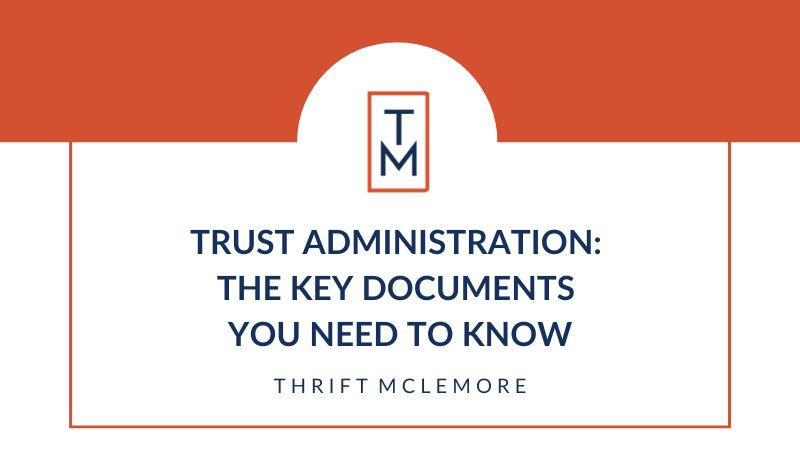If you’ve created a Georgia Revocable Living Trust or are responsible for administering one, it’s important to understand the components that make the Trust work. Each plays a specific role in ensuring that assets are managed and distributed the way the Trust creator intended.
Understanding how these documents fit together helps you feel more confident and avoid unnecessary mistakes during the Trust process.
Trust Agreement
The Trust agreement is the rulebook for how the Trust operates. It’s the backbone of the Trust administration process and provides the framework for the other documents. It outlines details such as:
- The Trust creator (often referred to as the “Settlor” or “Grantor”): This is the person who establishes the Trust, transfers assets into it, and determines its terms.
- The Trustee: This person or institution is responsible for administering the Trust. The Trustee ensures that the Trust creator’s instructions are followed and manages the Trust’s assets on behalf of the beneficiaries.
- The beneficiaries: These are the people or entities that benefit from the Trust assets.
The Trust agreement also specifies how assets should be managed and under what circumstances the beneficiaries will receive distributions.
Certification of Trust
A Certification of Trust is a short version of the Trust agreement. It gives the basic details (such as the Trust name and the Trustee’s authority) without revealing all the specific terms.
It’s often used when the Trustee needs to prove their authority to manage the Trust’s assets, but doesn’t want or need to disclose the entire Trust agreement.
For example, if the Trustee needs to open a bank account, the bank will likely request proof that the Trustee has the authority to act on the Trust’s behalf. The Certification of Trust provides this verification while keeping sensitive information about the Trust (such as its assets and beneficiaries) private.
Pour-Over Will
A Pour-Over Will acts as a safety net for any assets that were not transferred to the Trust during the Trust creator’s lifetime. It ensures that those assets still end up in the Trust after the Trust creator’s death, rather than passing according to state law.
For example, if a bank account or piece of property wasn’t transferred to the Trust during the Trust creator’s lifetime, the pour-over will “catches” those assets and moves them into the Trust after death, ensuring they are eventually handled under the Trust’s terms. This ensures that all the Trust creator’s assets are distributed according to their wishes.
Transfer Documents
Transferring assets to the Trust ensures that these assets are legally recognized as part of the Trust and will be distributed in accordance with the Trust’s terms.
The transfer of assets to the Trust depends on the type of asset. For example:
- Personal Property Transfer: transfers personal items, like jewelry or artwork
- Deed: transfers real estate
- Act of Transfer: transfers various assets such as business interests (for example, ownership in a corporation, partnership, or LLC)
Memorandum for Tangible Personal Property
A memorandum for tangible personal property allows the Trust creator to specify how certain personal property, like furniture or family heirlooms, should be distributed after death.
As of January 1, 2021, a memorandum for tangible personal property is legally binding under Georgia law, provided it meets certain legal requirements.
The memorandum offers flexibility by allowing the Trust creator to modify the distribution of certain items of personal property without requiring an update to the entire Trust. Any tangible personal property not distributed by the memorandum passes according to the Trust instructions.
Speak With an Atlanta Estate Planning Attorney
If you are creating a Georgia Trust or administering one, don’t try to navigate the process alone. At Thrift McLemore, we help families across Georgia understand the full range of Trust documents and ensure every detail is handled correctly.
Call us today at 678-882-0830 to schedule a consultation with one of our experienced Atlanta estate planning attorneys. We’ll guide you step by step to make sure your Trust works exactly as you intended.







